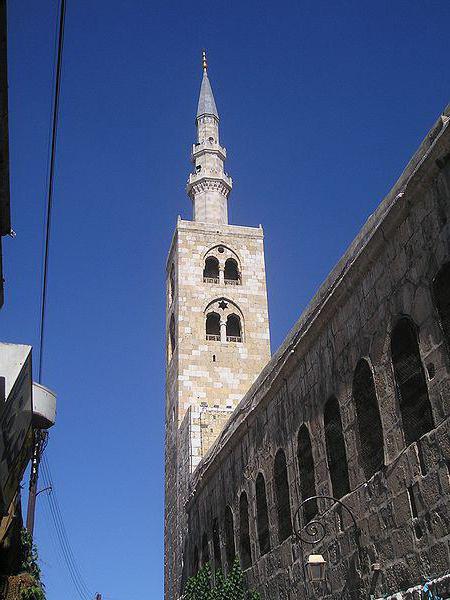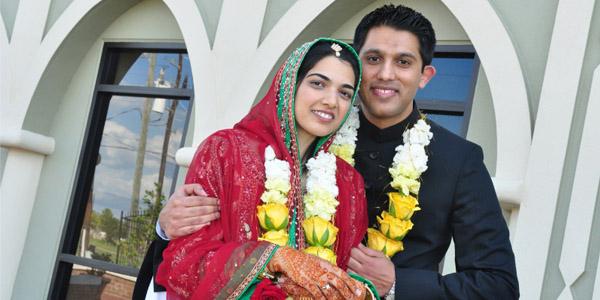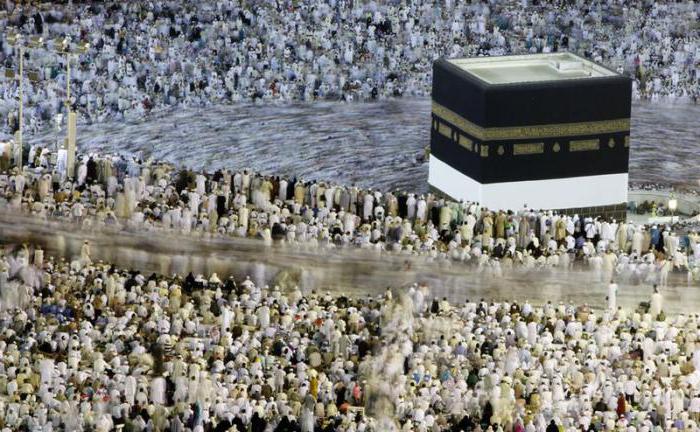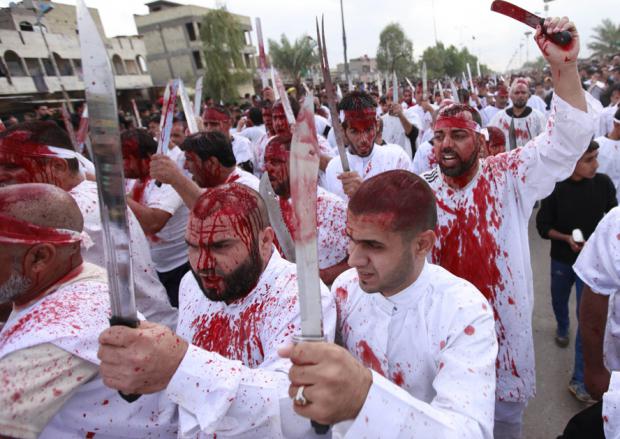Jesus is in Islam. The Prophet Isa ibn Maryam
The centuries-old war between Muslims andChristians, crusades and Islamic conquests in Europe have led to the fact that in the minds of many people there is a stable stereotype that between the two religions there are insoluble contradictions. This is not surprising - so the philistine will say. Do not we remember how the Muslim conquerors of the captured knights were forced to step on the crucifixion and renounce the Savior?
But one thing is cinema and book stereotypes, andother - historical and religious facts. Reality is much more complicated. Jesus Christ in Islam, unlike Judaism, takes an honorable place. Of course, Muslims do not consider him the Son of God, but still he has the rank of a prophet. Let's figure it out.

Meaning and mission
Jesus in Islam is "nabi". This title is given to the greatest prophets. According to the interpretation of Islam, God sent him to the Jewish people, so that he confirmed the faithfulness of the Pentateuch (Taurat) and brought a new Scripture - Injil. So in the Muslim world, the Gospel is respected. This is the new law of Allah. Therefore, Christ is also called the messenger of God (Rasul).
Muslims also deny that Jesus came topeople to atone for their sins. From their point of view, everyone should be judged on their own affairs. He came to show people the right way to God, to give them Injil - "Scripture, good news."

Other titles
Jesus in Islam is called in different ways. The Muslim tradition speaks of him as an "abdullah" (servant of God). In the Qur'an, Christ is often called the word "masih," that is, the Messiah. However, the meaning that the Jews invested in this title, Islamic theologians do not recognize.
Although some other interpretations of this biblicaland the Qur'anic character coincide with the Christian. We know that Christ often called himself the Word. But even in the Qur'an, his name is adjacent to such epithets as "Kalima" or "kaul-al-hakh". This means "the Word of Allah" and "the revelation of truth." Isa is also called "al-martyr", that is, the Witness (or martyr) of God. He is still a sign of the Judgment or Resurrection ("alam").

Immaculate Conception
Prophet Isa is a significant character of Islam. The Koran's account of his birth and life coincides in many respects with the Christian Gospel. For example, there is a legend about the miraculous birth of a prophet without the participation of a man. The angels - or some kind of "perfect man" - told his mother, Maryam, that she would bring a wonderful son to the world. This will happen because Allah has so wished.
The son of Maryam - prophesied by angels - will perform miracles and preach truth to people. It is not for nothing that the Qur'an calls Christ a new Adam. After all, he too was created according to the word of God.
The role of the Islamic "Madonna"
Christ is the only Islamic prophet in fullwhose name is mentioned mother, not father. The Muslims call him Isa ibn Maryam. The Koran and tradition assure that the prophet immediately spoke with his mother immediately after his birth, which already testifies to the unusual nature of this child. According to Islamic legends, Maryam gave birth to a son under a palm tree, and as a reward for her torment she received wonderful fruits from this tree, and a spring was hammered under him.
Jesus also took from his mother the word that shenothing will tell people about his miraculous birth. But the Jews learned that Maryam had a son without a husband, and they decided to stone her. Then the child spoke to them and declared himself the Messenger of Allah and the Prophet. But the Jews still did not believe it and sent a request to the Roman governor to punish Mary for lasciviousness.
Then the son and mother were forced to flee toEgypt. A special Surah in the Qur'an is dedicated to the woman who gave birth to the prophet. It is called "Maryam". Jesus is constantly called the son of Mary, although it is not customary in Arabic culture to use the mother's name as a designation of kinship.

History of the Prophet Isa in Islam
When the boy was twelve, Maryamtogether with him returned to Judea. They settled in the city of Nasir (the name of Nazareth is in the Koran). When the prophet Isa grew up and was thirty years old, he began to preach his teaching to the people of Israel. He could resurrect the dead, heal diseases, particularly leprosy. The Muslim Jesus could discover everything secret and hidden, opened the eyes of the blind and could even breathe life into the clay figures of birds.
He urged people to follow the new law,which he brought with him. These commandments abolished the action of the old, obsolete. He urged people to worship God under the new law. Many began to listen to him, and some even became his devoted disciples, apostles ("havarien"). God sends them bread from heaven, when they ask him about it. Jesus is inspired by the Holy Spirit ("ruh-al-kudus") and helps him.

The crucifixion of Isa in Islam according to the Quran
Many Jews not only did not believe the newprophet, but in every possible way interfered with him and tried to kill him. In the end, Isa ibn Maryam became so hated by them that they slandered him to the Roman governor. They said that this prophet is actually a rebel and a disturber of peace, that he wants to raise an uprising, drive out the invaders and become a king of the Jews. Then the Romans ordered to seize the preacher and crucify him according to their laws, as opposed to the power of Caesar.
As for the arrest of Isa, the Muslimsseveral versions. Some say that knowing that they will come for him, the prophet called the bravest of the apostles to go to the cross in his place and ascended to Allah. The Romans accepted the disciple for Christ and crucified him. Another story tells us that among the apostles was a traitor. And when the soldiers rushed into the house where Isa was with the disciples, the renegade was with them to point to the prophet. Then Allah took Christ to himself, and the traitor gave his appearance. He was seized and crucified.
Be that as it may, the Qur'an only talks aboutthat the prophet was not killed, that it was only presented to the Jews. They announced to everyone that he had died, but in fact, Isa ascended to God. Next to Him, he will be until the Day of Judgment comes.

Isa and Muhammad
So how do these two confront each other?character, as it is commonly believed? Isa in Islam is a prophet of true religion. She was like that until Muhammad appeared. After all, people, as the Muslims believed, rejected Isa and did not follow him. Then God sent another messenger to them. Therefore in his sermons Isa also predicts the appearance of the prophet Mohammed. The Koran pays great attention to this figure. About Isa is said much more than about all the other prophets. In the holy book of Muslims, he is mentioned 25 times.
Second coming
The meaning of the name Isa in Islam is inextricably linked withthe prophetic meaning of his mission. Christ among Muslims often neighbors with Muhammad. The Islamic tradition also shares faith in the second coming. There are several stories (hadiths) about this event. According to them, Isa, who is now in paradise, next to God, will come to Palestine (or descend to the minaret of the Umayyad mosque in Damascus, Syria). He will be clothed in white robes, his hands will rest on the wings of angels, and his hair will appear moist, even if they are not touched by water.
In anticipation of this, every day before the mosquenew carpet. Isa will destroy the Messiah and establish the kingdom of justice - the true Sharia. Then he will die, and he will be buried in Medina, in the Prophet's mosque. Even now, pilgrims and visitors can see the pre-prepared for Isa place next to Muhammad. And on the Day of Judgment, Allah will raise him up, and he will be one of the main witnesses against the infidels.

Using a name
Since Jesus in Islam plays such aa significant role, then the attitude towards him is usually very respectful. Muslims often refer to their children as the names contained in the Qur'an. Isa is no exception. Muslims give this name to their children. Some researchers believe that after the existence of Islamic states in southern Spain, this custom has appeared in local Christians.
The nature of Christ
Islam in Islam is one of the most importantprophets and in its significance is inferior except to Muhammad. The main difference between Muslims and Orthodox Christians is that the former do not recognize the Trinity and consider sacrilegious the naming of Christ as the Son of God.
On the other hand, in the Qur'an, Isa is called"Mukarrabun." This means "close Allah," "a friend of God." Therefore, some theologians believed that this prophet, at least in part, is an angel. And in some areas of Islam it is Isa who is the object of special veneration. Some historians believe that Muslims first encountered Christians when church orthodoxy was not yet fully formed. These were the times of disputes between the followers of Jesus concerning his nature. In addition, at that time, serious discussions took place regarding the veneration of the crucifixion and the cult of saints, which was rejected by many Christian dissidents as superstition and paganism. It is this stage that is fixed in the Qur'an. Perhaps Muhammad, as a witness of these conflicts, also perceived the worship of holy places and relics as idolatry.
Muslims and Christians
Respectful attitude towards the followers of the second inIslam of the prophet is prescribed in the Qur'an. Christians there are called "people of the Book" or "ahl-al-kitab". Isa ibn Maryam, of course, is devoid of divine nature for Muslims and is not one of the persons of the Trinity, and they believe this is a delusion. Nevertheless, the Koran directly points out that the Nazarenes have come closest to love and true teaching. They even mention special respect for monks and clerics who do not suffer from pride and do not ascend to others, but serve humble service to God.
To Christians, especially those who followshould be treated with tolerance. If a discussion arises with them, then it is necessary to give convincing and better arguments. And if Christians become angry and "outraged", we should simply leave and not argue with them, saying: "You have your own Scripture, and we have our own, so let everyone believe in what is sent down to him." So at least the sacred book of Islam says.
</ p>




